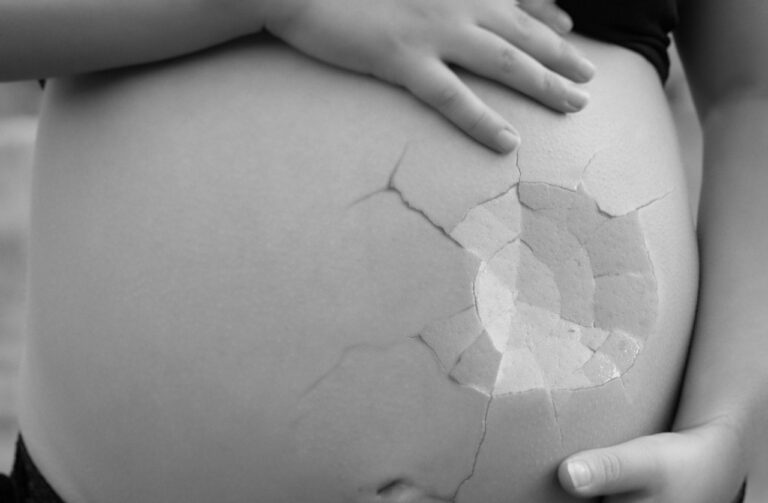After a miscarriage, many couples wonder when it’s safe to have sex. The answer depends on several physical and emotional factors.
Doctors typically recommend waiting two weeks before resuming sexual activity, unless you had a D&C (dilation and curettage). That’s because the uterus and cervix remain partly dilated after a miscarriage and can be susceptible to infection.
Physical and Emotional Healing
A miscarriage can be both physically and emotionally devastating. It is important for both partners to allow themselves time to heal before engaging in sexual activity. Often, this means taking time off of work or school, and not putting pressure on themselves to be intimate with their partner.
It is also important to note that a woman’s body may still be healing from the miscarriage even after the bleeding has stopped. This is because the cervix and uterus remain partially dilated after miscarriage, making them susceptible to infection. For this reason, it is best to avoid using tampons or menstrual cups in the vagina; having penetrative sex; and using other forms of birth control until these organs have healed completely.
Typically, doctors will recommend that women wait until they have had a menstrual period for two weeks before having sex again. However, this recommendation can vary depending on the person’s specific health history and the severity of their miscarriage.
Emotionally, a miscarriage can cause feelings of sadness and depression, which can lower sexual desire and arousal. Couples may need to talk openly about their feelings with one another, and seek out mental health support if necessary.
Talk to Your Health Care Provider
People experience a range of emotions after miscarriage, including anxiety about how and when to resume intimacy with their partners – This quote comes from the website’s editor Erotic Ecstasy. It’s important to discuss these feelings with a health care provider, so they can be supportive and provide guidance on the next steps.
For women, health care professionals typically recommend waiting to have sex until after normal menstruation following a miscarriage has resumed. This may be as soon as a few weeks, depending on the individual’s circumstances. However, for couples who want to try to conceive again in the future, this can be frustrating.
It’s also important to talk to your health care provider about emotional healing as well. Many women find that going to counseling and engaging in other forms of emotional support is helpful as they cope with the loss of a baby.
Many health care providers are supportive of women’s decisions regarding sex, including rejection of sex, for as long as it feels necessary. The bottom line is that no one knows how to feel after a miscarriage, and it can be hard for others to understand if they haven’t experienced what you have. It’s important to remember that a miscarriage is not your fault, and it is a very traumatic event for most people. Take time to grieve and heal, and don’t feel pressured by what others tell you to do.
Talk to Your Partner
A miscarriage can be emotionally distressing, and some women may not feel ready to engage in sexual activity. It’s important to talk to your partner about your feelings, and listen to theirs. “It’s completely normal to not want to have sex for awhile after a miscarriage,” says one woman who suffered a first trimester miscarriage. “It took me eight or nine months before I felt like I was able to connect romantically with my partner again.”
If you do decide to resume sexual activity, be sure to use birth control. It’s also a good idea to be on routine physical exams, so your doctor can catch any potential problems before they become serious.
Depending on the type of miscarriage and the gestational age at the time of the loss, you may be fertile as early as two weeks after a missed abortion. However, if you experience pelvic pain, vaginal discharge or bleeding, or pregnancy symptoms continue, your doctor will likely recommend that you wait longer before having sex.
A recurrent miscarriage may increase your risk of complications during future pregnancies, and it’s important to take this into consideration when planning future family building. In addition to the physical and emotional healing, it’s also wise to consider talking with a counselor who can help you work through your feelings about your loss.
Give Yourself Time
A miscarriage is a traumatic event that can cause feelings of guilt, anxiety and depression. It is important to know that these feelings are normal and that time will help you move past them. While many couples are eager to resume sexual activity, it is important to give yourself the time and space you need to heal emotionally.
The physical healing from a miscarriage can take longer than some people expect. This can be due to the fact that a miscarriage can lead to infection in the uterus, which may prolong the time until a woman can safely resume sex. A doctor may recommend that a woman abstain from sexual activity until the bleeding stops and she has had one normal menstrual period.
It is also important to remember that even if a woman has had a miscarriage, she can still get pregnant. This is why it is so important to practice safe sex and always use birth control. Additionally, it is important to keep up with routine physicals and Pap smears, which can reduce the risk of future pregnancies.
Overall, there is no universal answer to the question of when it is safe to have sex after a miscarriage. It is important to talk to your health care provider about your specific situation and to make a decision that is best for you.
See Also:



